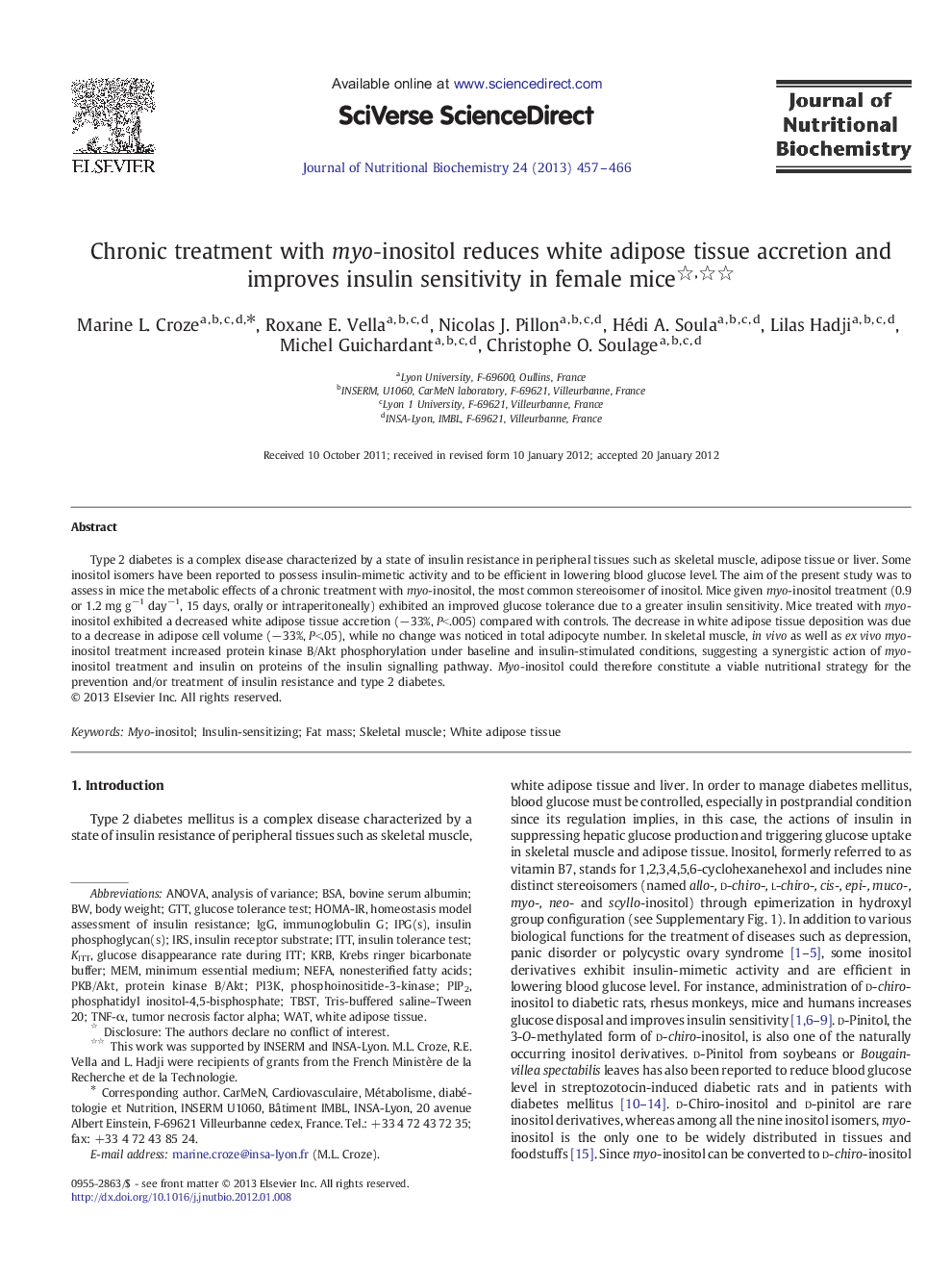| Article ID | Journal | Published Year | Pages | File Type |
|---|---|---|---|---|
| 1990128 | The Journal of Nutritional Biochemistry | 2013 | 10 Pages |
Type 2 diabetes is a complex disease characterized by a state of insulin resistance in peripheral tissues such as skeletal muscle, adipose tissue or liver. Some inositol isomers have been reported to possess insulin-mimetic activity and to be efficient in lowering blood glucose level. The aim of the present study was to assess in mice the metabolic effects of a chronic treatment with myo-inositol, the most common stereoisomer of inositol. Mice given myo-inositol treatment (0.9 or 1.2 mg g−1 day−1, 15 days, orally or intraperitoneally) exhibited an improved glucose tolerance due to a greater insulin sensitivity. Mice treated with myo-inositol exhibited a decreased white adipose tissue accretion (−33%, P<.005) compared with controls. The decrease in white adipose tissue deposition was due to a decrease in adipose cell volume (−33%, P<.05), while no change was noticed in total adipocyte number. In skeletal muscle, in vivo as well as ex vivo myo-inositol treatment increased protein kinase B/Akt phosphorylation under baseline and insulin-stimulated conditions, suggesting a synergistic action of myo-inositol treatment and insulin on proteins of the insulin signalling pathway. Myo-inositol could therefore constitute a viable nutritional strategy for the prevention and/or treatment of insulin resistance and type 2 diabetes.
